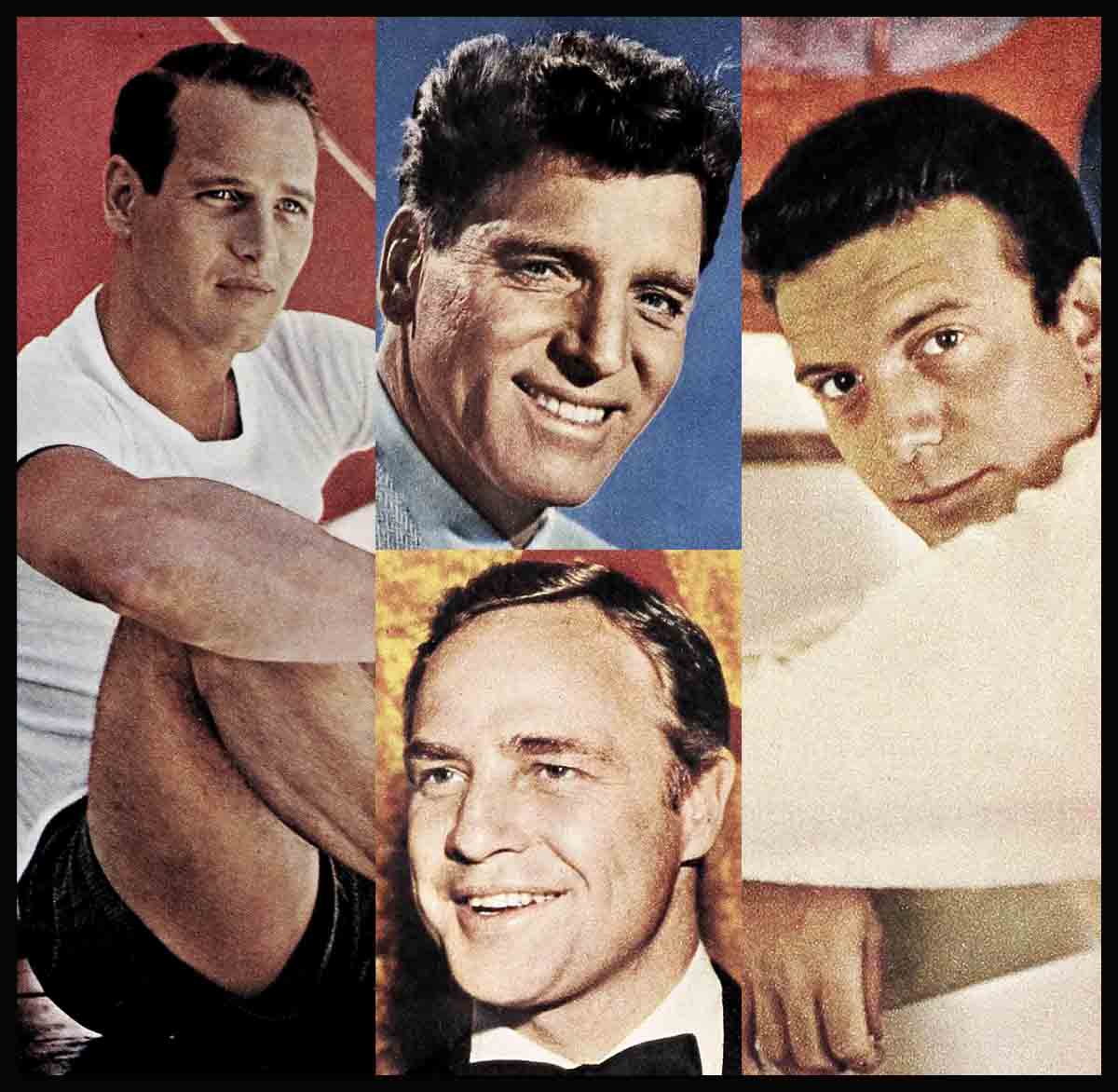
Hollywood And The “Dignity Explosion”
In Cambridge, Maryland, and Los Angeles, California, in Birmingham, Alabama, and New York City—in towns that almost no one ever heard of and cities that are world-famous—American Negroes are demanding the end of discrimination in housing, education and employment.
Actor James Whitmore has named this “The Dignity Explosion.” In less than two years it has blown up the self-satisfied surface of American life. Every white American will have to Join The Dignity Explosion-or oppose it-before this year ends, because a generation of American Negroes will no longer be satisfied with anything less than real equality. The decision that most white Americans make will remain a private one, known to a few friends or—perhaps—only to themselves. Because a movie actor has no really private life, he can make no private decisions. Over a dozen movie stars have already publicly joined “The Dignity Explosion.” Charlton Heston made his position clear more than two years ago when he picketed segregated lunch counters in Oklahoma City, carrying a sign he had lettered himself: “ALL MEN ARE CREATED EQUAL” Marlon Brando did his picketing recently in front of a Southern California housing tract that refused to sell homes to Negroes. Paul Newman joined a sit-in demonstration at California’s state capitol in favor of a fair housing bill.
In exclusive interviews with Photoplay reporter Aljean Meltsir, here is what Paul Newman and Joanne Woodward, Burt Lancaster, Marlon Brando, James Whitmore, Anthony Franciosa, Ina Balin had to say on the crisis in American life:
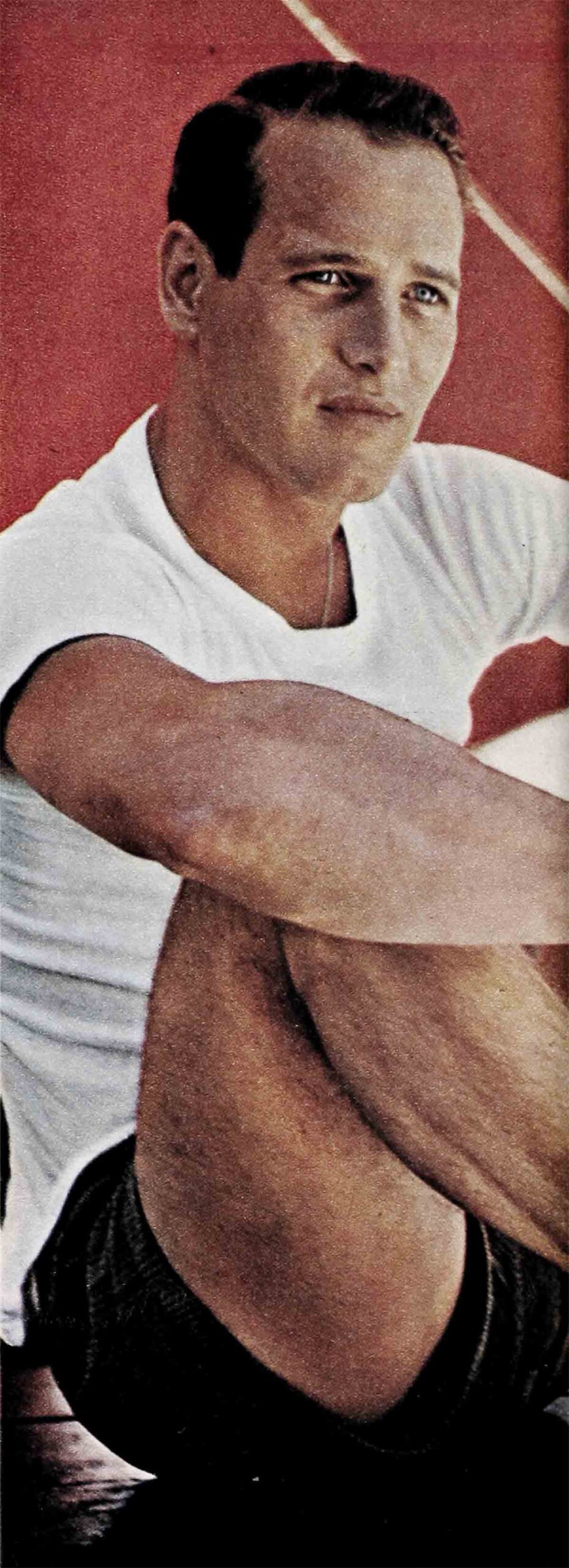
PAUL NEWMAN: “Some people say that there is some personal gain involved in my stand on civil rights, that I’m doing it to get publicity. Other people warn me to stop because it will ‘hurt’ my career. Am I any less a citizen for being an actor? Any kind of immorality condoned by the community must be actively attacked by everyone. A dope addict, a gangster, a pimp, can see a house that he wants and buy it. A Negro doctor or engineer can not. How can we question the immorality of other nations when we have this blight of Negro inequality hanging over ourselves? It is a very poignant struggle that the American Negro is going through now, and I don’t see how anyone can fail to be moved by it. There has been a kind of explosion in our country this year. Sometimes problems are called to people’s attention rather spectacularly like this. A person -like most white Americans who lives and works in a white ghetto has to have such a problem called to his attention before he can act. This explosion has shown us the problem. Now we-all of us—must act.” Paul’s wife, actress Joanne Woodward, adds, “Paul speaks for me also. I feel as he feels and join him in everthing he says.”
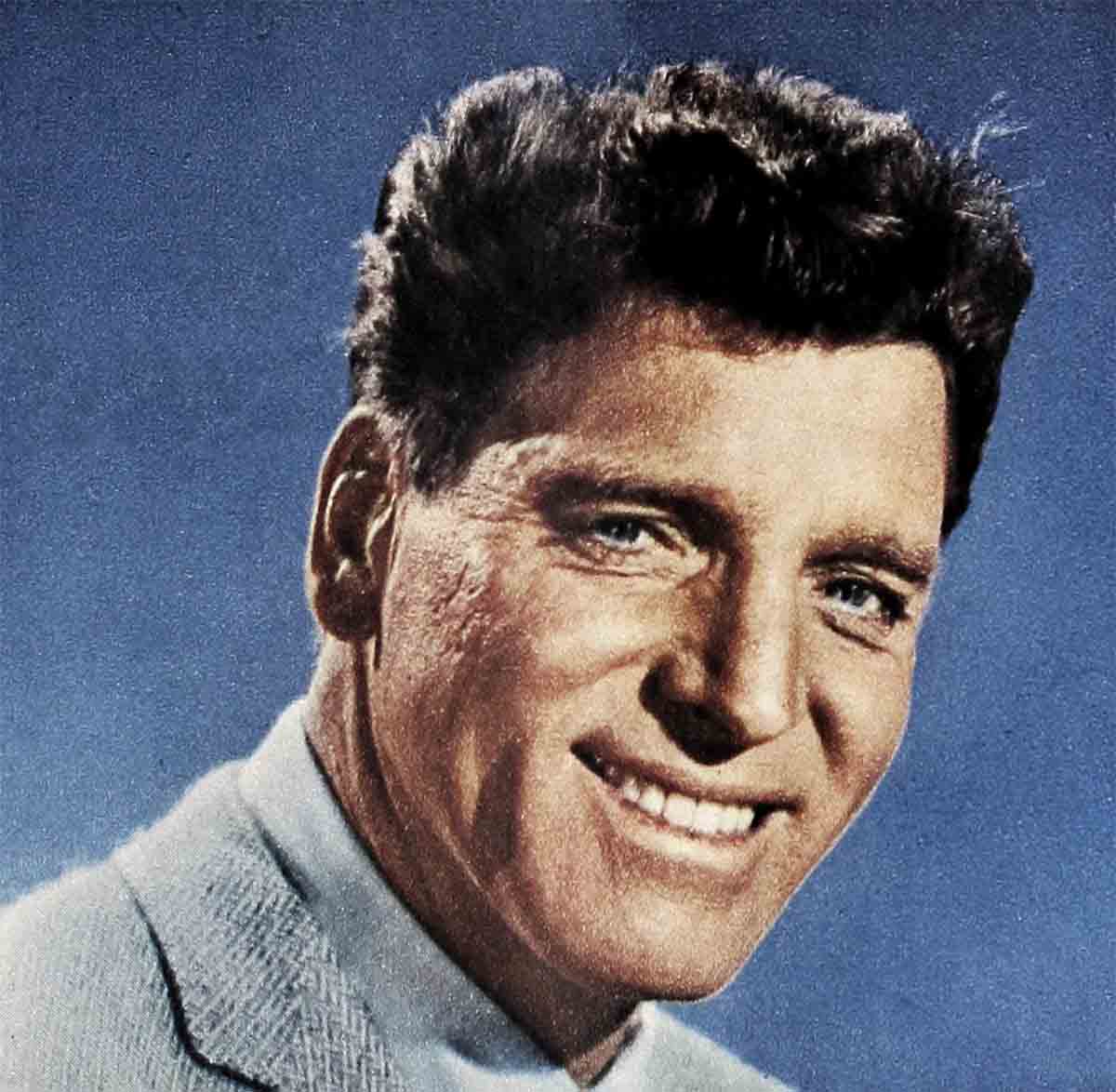
BURT LANCASTER: “Last summer I joined hundreds of thousands of other Americans-including Marlon Brando, Peter Brown, Tony Curtis, Mel Ferrer, Tony Franciosa, Charlton Heston and Billy Wilder—who believe in equal opportunity and freedom for all. I joined them because I wanted actively to express my support for the Civil Rights legislation before the Congress and to urge its passage. I joined them because I recognize the events of the summer of 1963 as the most significant I have lived through, and I wish to be a part of these events. I also wish to be a part of this time when promises we made to ourselves a century ago will finally be kept.
“People have told me that I’m being used by the people who desire Negro equality. They’re right. Because I am an actor and my name, consequently means something to the public. I am being used. But if my name and my views can make one person join a Civil Rights demonstration or make one person listen to a panel on Civil Rights and go away with a new sense of responsibility, a new understanding of Negro problems—the Negro’s rights, his life in America, the second-class citizenship which he is ‘enjoying’ at this moment—then I’m very happy that I am able to be used.”
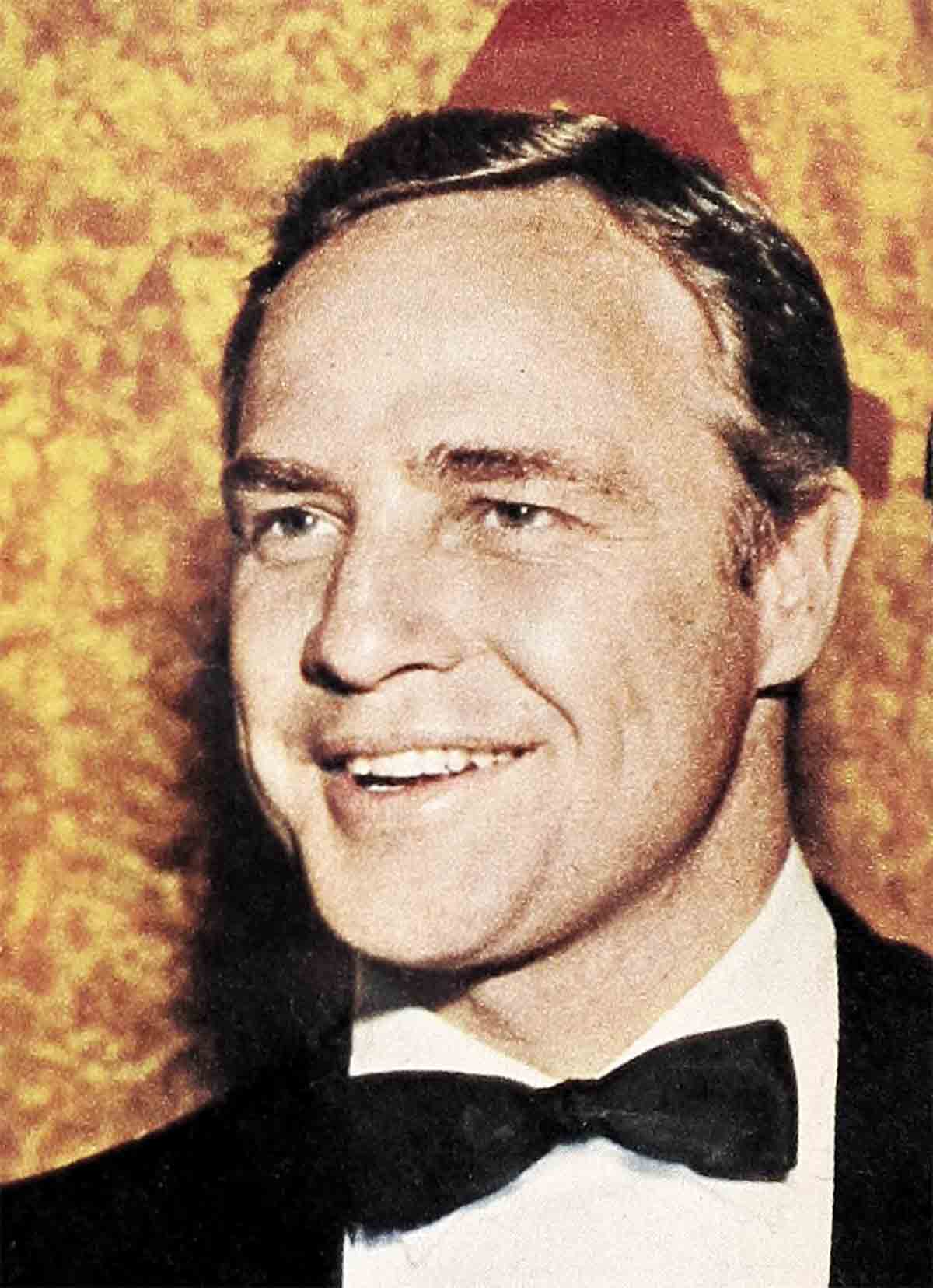
MARLON BRANDO: “There was a time when all Negroes accepted sitting in the back of the bus. But for some reason—after a hundred years—one Negro woman said. ‘I don’t want to sit in the back of the bus.’ One psychological stone pushed another that pushed another until we’re now facing a landslide of violence.
“Prejudice exists in the motion picture industry. I have seen people refuse to hire a Negro because there was a sexual overtone in the scene, and I have heard the excuses that were given. ‘We will lose 40% of the market.’ ‘We have a moral obligation to the bankers.’ These are not necessarily bad men. They’re ignorant, absolutely ignorant. Some of these people will have to be forced. Some of these studios will have to be demonstrated against.
“The question of money bears much more importantly on these issues than most people think. The stars—actors such as Chuck Heston and Burt Lancaster—can be enormously effective. I, for instance, can say, ‘I will not work in this picture unless there are a fair representation of Negroes. I can observe—all through the picture—crowd scenes, and I think I can be of enormous influence in getting fair representation.
“We must all act now. I think we’re late. I think all of us are late to join in this movement. It’s going to get away from us and it’s going to end tragically. But we can do something now. We must do something now if we care about our country.”
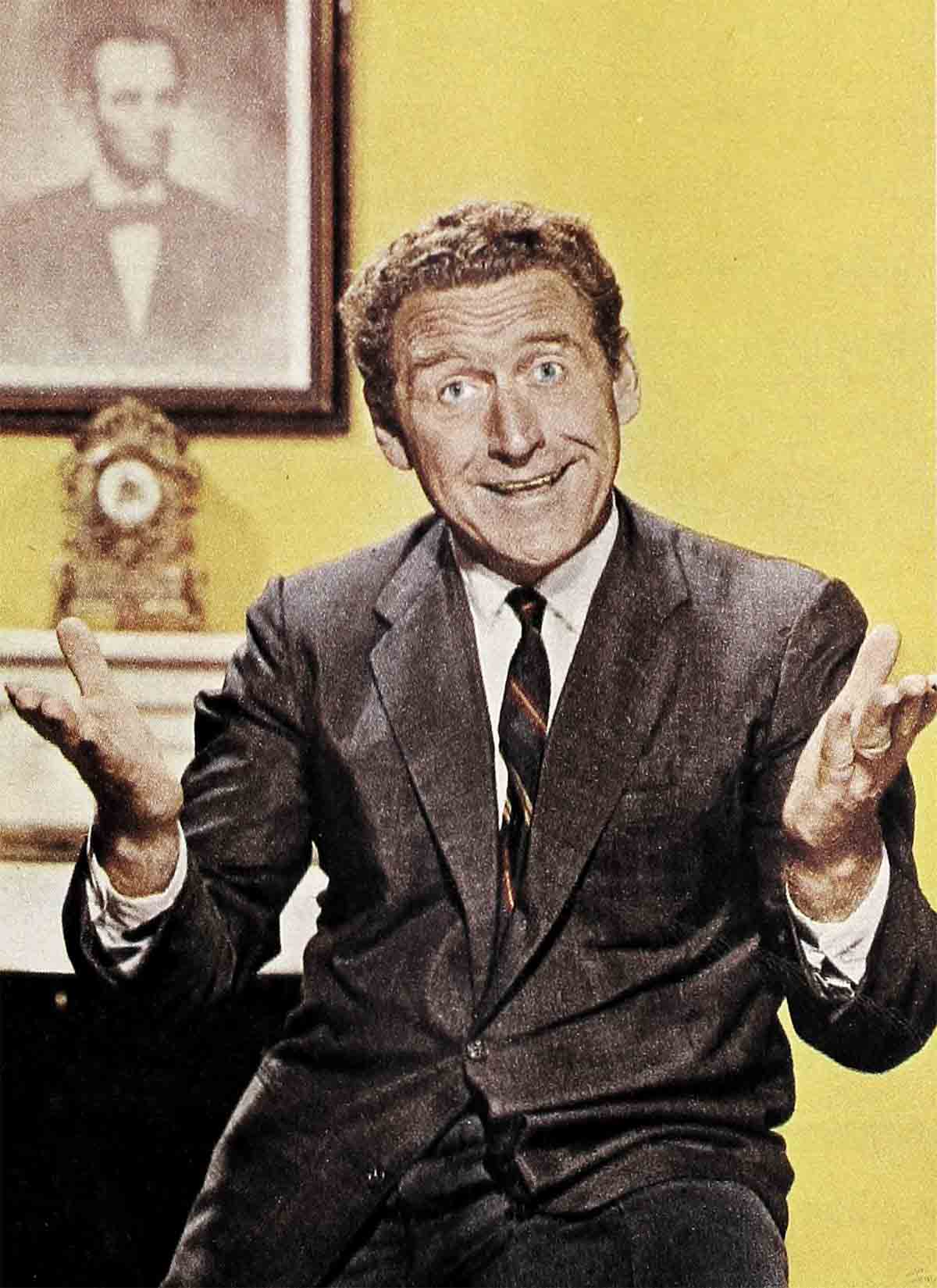
JAMES WHITMORE: “There is a ferment that is taking place in our country today. It is a ferment that is long overdue. I call it The Dignity Explosion, the volatile explosion of dignity suppressed too long.
“It seems to me that dignity is something that is peculiar to the human species. This particular revolution that is taking place in America is a strong manifestation of human dignity. It is saying that there is a reason for living beyond bread.
“I think it’s very hard for those of us who are able to ‘have dignity’ to realize what it means not to be allowed to stand straight and in a dignified manner. I don’t come from a minority. I’m a white Anglo-Saxon, and my ancestors were solid middle-class Methodists, and no one has ever denied my right to be a human being. For hundreds of years, someone has denied that right to the American Negro, and—suddenly, shockingly—a boiling point has been reached.
“My eternal thanks goes to the essential wisdom of the Negro community for turning toward the leadership of people like Martin Luther King rather than toward those who advocate violence, battlefields in the streets and complete disengagement from the white community.
“We have been forced by the Negro community to face the Negro’s indignities. It has ever been thus. The person who has been hurt has to tap the other person on the shoulder and say. ‘Do something.’ If we do not, we will be denying ourselves our own dignity—and the call of conscience.”
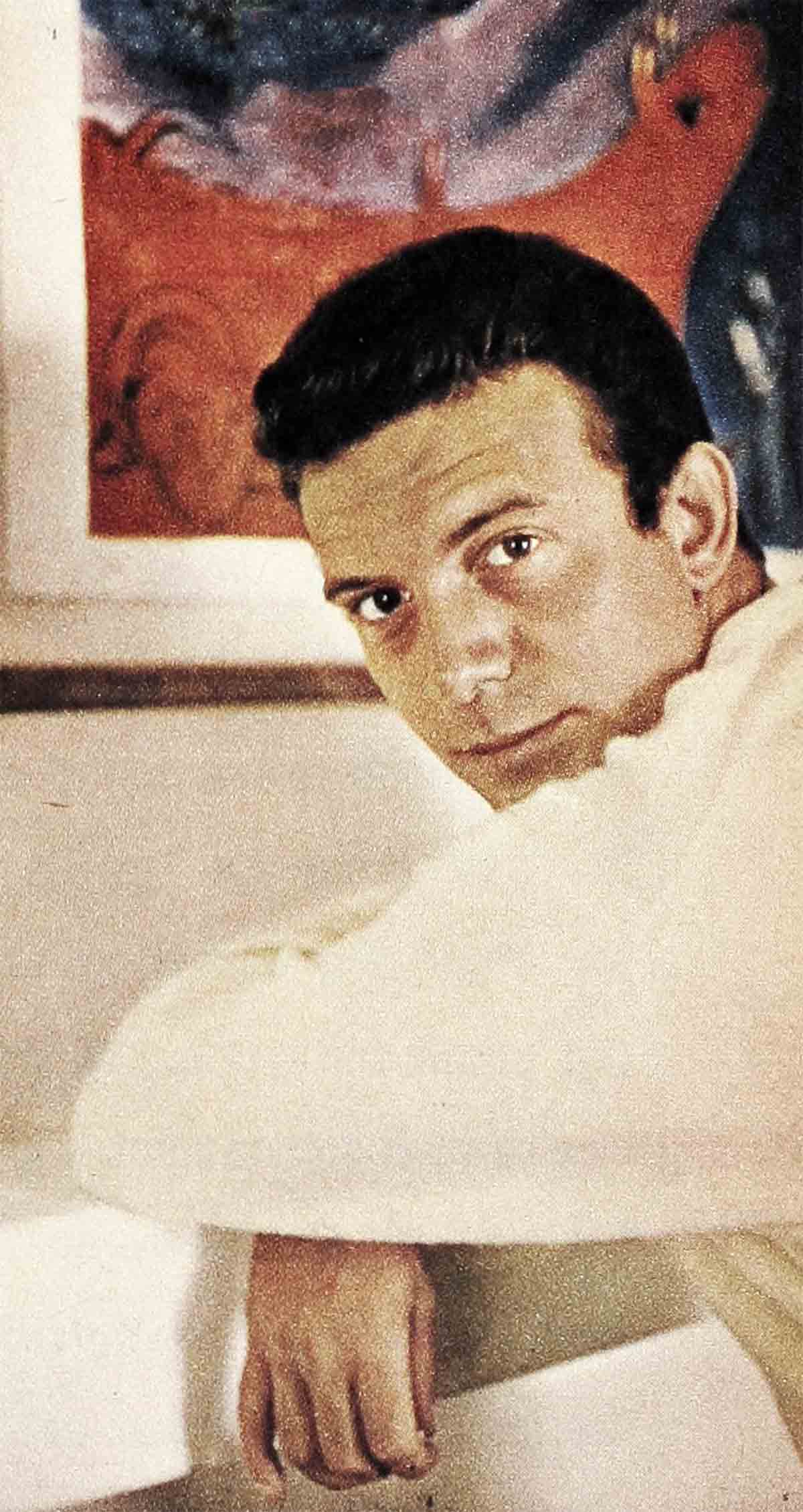
ANTHONY FRANCIOSA: “It is more than clear that there is a large gap between the theory and actual practice of democracy.
“What are we going to do about it?
“We can no longer afford the luxury of covering the problem with excuses. The fight to achieve full equality is not just that of racial and religious minorities. It is the top priority item for every individual who deems himself an American. Freedom is indivisible. There cannot be one set of privileges for the majority and another for the minority. What each of us does will decide what our ultimate strength as a nation will be.
“Few of us are called upon to engage in activities leading to arrest, but each of us—as a human being—has a responsibility to play a key role in the fight for freedom.
“For some the role will develop in stages, with the first step being to face the ingrained, irrational prejudices which have developed in us over the years. In all of us, the time for small talk, platitudes, expressions of good will and brotherhood is past. Very past. The trumpet of freedom calls us now!”
INA BALIN: “In the summer everyone tries to get the darkest suntan possible, but a boy with naturally dark skin is strange and different. What nonsense that anyone should be judged by the color of his skin! Sidney Poitier and Harry Belafonte are among my best friends because they are beautiful, marvelous human beings, not because they are or aren’t Negroes. When it comes time to go to war, no one says, We’re not going to let you die for America because you’ve got black skin. And no white southerner bleeding in Korea said to a Negro corpsman, ‘You can’t save my life because you’re a Negro.’
“Yet I saw a picture in a newspaper the other day of something happening in Alabama in the summer of 1963. It was the most awful picture I have ever seen. A Negro woman was lying on the ground with three white policemen standing over her. One of them had his knee in her chest, pinning her to the ground, and a fourth policeman was laughing.
“I don’t want to see pictures like that because we’re not animals crawling on all fours. We’re human beings. And, if we’re not better than that picture, we’re in very bad shape, and the world is in very bad shape. Because we’re sending men to the moon when we can’t even cope with people on our own planet.”
THE END
It is a quote. PHOTOPLAY MAGAZINE NOVEMBER 1963





No Comments